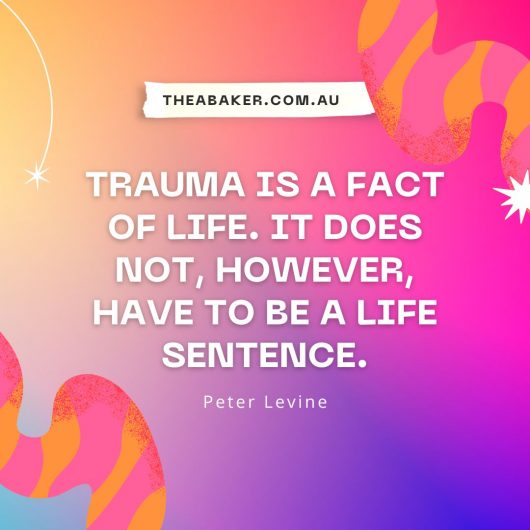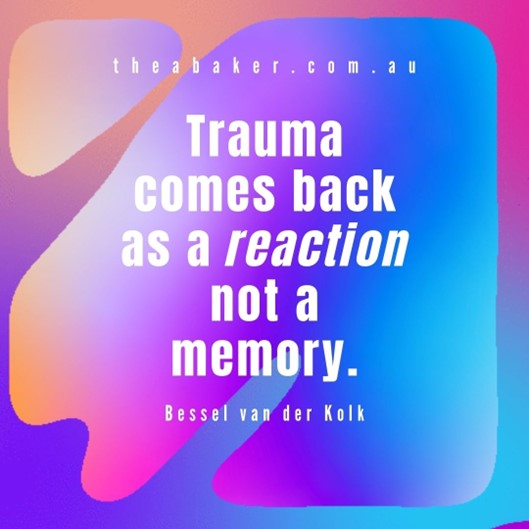Trauma Recap
Trauma Recap
Helping clients deal with and heal from their traumatic experiences is at the very heart of the work that we do at Thea Baker. Starting with a little Assisting clients to understand what trauma is and how it is impacting their lives is probably the first step for many of them because oftentimes they have accessed our mental health care system (I’m writing from an Australian perspective here, though believe this to be indicative of many other ‘western’ countries) they have had their symptoms assessed and have probably come out the other side with a clinical diagnosis. This starts with a presumption of their being something wrong with a person.
The way that I work with trauma is to start from a different place: what has happened to this person in front of me that appears to have affected them so profoundly? How on earth did they cope and how have they been coping since then? I come from a contextual place, trying to piece together as best as I can alongside them how these experiences have shaped their emotions, behaviours, thoughts, relationships and interactions with others around them.
We are all likely to experience ‘potentially traumatic events’ at different times in our life, but for them to not become funky (my own personal descriptor, not found in any clinical textbooks!) enough to lead to Post-Traumatic Stress Disorder (PTSD) is a very personal, and nuanced thing. It might be because of our individual stress levels at the time of the traumatic event(s), our previous experiences of trauma and how we were able to navigate them, our support networks or lack of them and even the stress levels we are under at the time of the event.
PTSD looks like a set of overwhelming stress responses, the most commonly experienced being:
- Hyperarousal – heightened sense of being on ‘high alert’, easily startled, feeling anxious, agitated or irritable. This is that fight-flight thing you’ll have heard about.
- Intrusions – flashbacks and / or nightmares relating to the event making the traumatised person feeling that they are experiencing the event(s) over and over again.
- Avoidance – this is a coping strategy to help navigate overwhelming fear and danger. It can be avoiding people, places, reminders of the event or emotional numbing.
Complex PTSD is pretty much what it says on the tin. Trauma with a side order of complex. Someone who has been exposed to “threatening events which are extreme, prolonged or repetitive, and from which it is difficult or impossible to escape” and / or “repeated childhood sexual or physical abuse, prolonged domestic violence, genocide, slavery and torture” (www.blueknot.org.au) is more likely to develop C-PTSD. So in addition to the stress responses above which form part of PTSD when the ‘complex’ bit kicks in so do the following:
- Emotional dysregulation: severe ongoing problems in regulating emotions
- Negative self-concept: ongoing sense of being worthless and defeated, as well as extreme feelings of shame and guilt
- Disturbance in relationships: ongoing difficulties in forming and sustaining relationships and connection
In summary, let’s get a couple of things straight:
- Trauma is experiential – it’s something that happens to you. It might be a one-off event or something that happens many times over.
- Trauma is individualised – what I might consider as traumatic might not be something you would consider traumatic and visa versa.
- Trauma is messy – when traumatic things happen to us our usual coping mechanisms can go offline leading to some – funky – behaviour. It doesn’t mean you’re crazy, but it does mean you probably could do with some help to manage your trauma differently.
- (This one is important) There is NO judgement when it comes to trauma.
If you’ve experienced trauma and haven’t found the right place to get help please get in touch with us: www.theabaker.com.au / hello@theabaker.com.au / 03 9077 8194.


